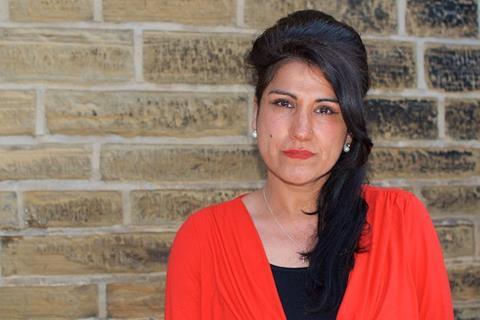Jasvinder Sanghera CBE was sacked last week from her role as survivor advocate on the Church of England’s Independent Safeguarding Board amid claims of a breakdown in relationships. In this interview, she sets the record straight

Steve Reeves, my fellow board member, and I are in total shock. We feel that the decision to remove us from the board was made because we were not prepared to accept and tolerate the Church of England frustrating the work of independence anymore. What is really shocking is the fact that I am hearing people from the Archbishop’s Council say that we did not engage with them. That is simply not true. We were actually in the process of dispute resolution. We have an email from the general secretary with seven points in terms of how we were moving forward. I only received that last week, and we asked for an independent mediator to seek a resolution. That is hardly the actions of independent board members not willing to engage in a broken down relationship. It is simply not true to say that we have been removed, and our work of 19 months destroyed, because of a relationship breakdown. That is a lie.
When you say the Church of England was frustrating independence, how were they doing that?
Well, in a number of ways. Firstly, they sought to impose their will on the Independent Safeguarding Board in terms of systems processes, which undermined the confidence of our work. We were there to provide independence and oversight of the National Safeguarding Team. My role, specifically, was to support survivors and victims who deserve to have their voice heard and cases reviewed.
We did not have Information Sharing Agreements, so we could not look at anything that the National Safeguarding Team were doing. Quite often, we would go to them and were told they couldn’t give us that piece of information because we didn’t have an Information Sharing Agreement. And we kept on asking them to sign one, but they wouldn’t. And what that meant was we could not access information, we could not conduct clear, effective reviews and follow up complaints in terms of the National Safeguarding Team and other areas.
Another issue we had was limited resources – we were not even provided with a phone line! In fact, in November 2022, Steve and I had a meeting with the Archbishop of Canterbury and the Archbishop of York after I sent an email with the headline ‘crossroads’. It said: “We have come to a crossroads. Do you want independence or not? Because this is not working at every point. We are asserting the mandate you gave us to act without fear or favour. Our work is being frustrated.” So we actually presented them with a model of what true independence could look like: we will work into our terms of reference that were ratified unanimously by the National Safeguarding Steering Group. That was thrown back at us: you can’t do this, you can’t do that. So these are just a few examples, I would say. Steve and myself stayed strong. We challenged, we did our best, on behalf of victims and survivors.
In my role I have experienced a disregard for the wishes of the survivor community at every point
What I have found deeply concerning about the decision to remove us, is that we did not have any time to prepare those survivors who are engaging with the Independent Safeguarding Board – those survivors whose reviews we have started. We emailed the general secretary and said: “Please do not publish this until we have had time to speak to survivors and prepare them. This is going to impact on them.” They didn’t allow us that. And since then, and even this morning, I’ve received an email from one of the survivors – whose review we were taking forward – who has had to seek urgent help for her mental health because of this. And she is clearly distressed because they didn’t give any thought to the impact on those that we were working with.
I would have hoped to have open and transparent conversations with the Archbishop of Canterbury and the Archbishop of York, but I have to say that we have tried.
Why is it so difficult to achieve truly independent scrutiny of safeguarding?
Well, my starting point as a survivor advocate would be to listen to the survivors. Listen to the victims, listen to what they are asking for. And I don’t believe that is happening. You have to start there. We are talking about individuals who have been harmed by the Church, the very organisation you represent. If that isn’t your starting point, then the rest falls down. I have to say that in my role I have experienced a disregard for the wishes of the survivor community at every point. I’ve been an advocate for victims/survivors for over three decades and I have never experienced anything like this before.
The deputy lead bishop for safeguarding, Right Reverend Julie Conalty, yesterday said she doesn’t entirely trust the Church of England on matters of safeguarding. Do you?
Absolutely not. And the timing of their decision to remove the two strong voices that have spoken truth to power two days before Synod is interesting. Yesterday, I received an email from the Business Committee clerk to General Synod letting Steve and I know that the item on safeguarding is now no longer happening. General Synod members need to hear this. They need to be asking the questions, because we won’t be there to share our experiences of the last 19 months. I believe it has been orchestrated to remove us. We were doing our jobs. In fact, we were excelling in our jobs. The National Safeguarding director personally told me that I was too survivor focused. I take that as a compliment, because the clue is in the job title: I’m the survivor advocate.
This was taken from an interview between Jasvinder Sanghera and Premier Christian Radio’s Donna Birrell
Read the Statement from the Archbishops’ Council on the Independent Safeguarding Board

































